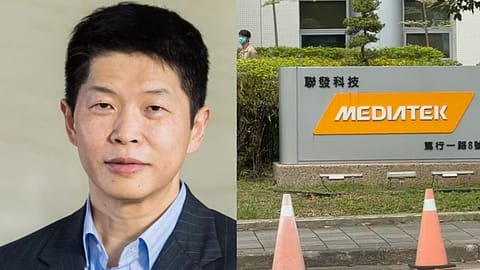MediaTek's David Ku on India's chip ambitions: 'R&D powerhouse now, manufacturing hub later'
David Ku of MediaTek highlights that while the software talent in India is robust, the development of manufacturing capabilities will require strategic investment and time.

In a recent exchange with Indian media at MediaTek’s sprawling headquarters in Hsinchu, Taiwan, Co-Chief Operations Officer and Chief Financial Officer David Ku offered a pragmatic yet insightful perspective on India's ambitious journey in the global semiconductor ecosystem. While bullish on India's prowess in research and development, Ku provided a measured outlook on the timeline for India to become a significant chip manufacturing hub.
MediaTek, a global fabless semiconductor giant, sees India as a critical market and a burgeoning hub for innovation, particularly in chip design and software. This isn't a newfound interest spurred by shifting geopolitical tides. "India right now has over (Mediatek) 1,200 employees," Ku stated, highlighting MediaTek's substantial R&D presence, its second-largest globally. "We built it way before the geopolitical issues came up. The incentive or the driver for us to have a global team (is that) we are still short of talent and India has very good talent."
This underscores a core tenet of MediaTek's strategy: investment driven by the availability of quality human capital. Ku emphasised that while India leads on the software front, the talent available for hardware and chip manufacturing work is still a work in progress.
On the supply chain front, building a full-fledged semiconductor ecosystem, especially in manufacturing and packaging, will take time due to limited existing infrastructure and workforce. However, he adds that India is already strong on the software side, where it plays a crucial role in front-end semiconductor development, an area MediaTek is actively expanding in.
Ku was candid on this front. "In the supply chain we talk about the foundry and the packaging. I think for that, it will probably still take some time for India," he remarked. He alluded to the complex and time-intensive nature of setting up semiconductor fabrication units. Even in the United States, with its established industry workforce, Ku noted it can take nearly four years to start mass production from groundbreaking for a new plant, referencing the timeline for TSMC's Arizona facility. TSMC is MediaTek's long-standing foundry partner for all its chips, including its upcoming 2nm chip for commercial rollout later this year.
He reiterated that India remains "some years away" from becoming a prominent semiconductor manufacturing hub owing to the lack of a skilled workforce.
Despite these manufacturing realities, MediaTek's commitment to India remains robust. The company views India not only as a key market for its products, especially with the rise of future-ready wireless technologies like Wi-Fi 7 and state of the art automotive platforms , but also as an expanding innovation base. The focus continues to be on leveraging India's strengths in R&D and software development.
Recommended Stories
MediaTek's engagement with India, built on a foundation of talent and market potential rather than transient geopolitical factors, signals a long-term partnership. The message is clear: India's is a leading force in global R&D, while manufacturing prowess will require patience, strategic investment in upskilling the workforce, and a long-term plan.